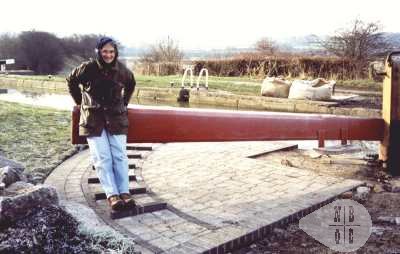Footgrips (scorchers) should follow the arc of the beam, and provide a solid foothold for the gate operator to press against.
|
|
This example is correctly fitted, but an extra set would benefit an operator with longer legs |
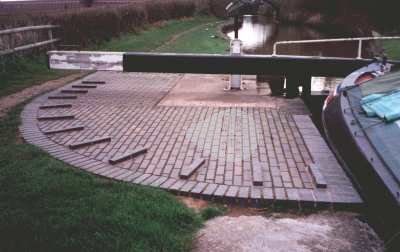 |
The two most important grips are the first one, for starting to open the gate, and the last one for starting to close the gate |
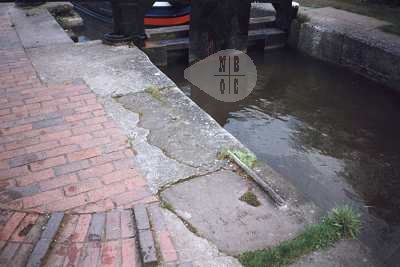 |
This iron bar embedded in the coping is most excellent for the first footgrip to start closing the gate. A few of these original ones remain around the system. It is possible to fit this type nearer the edge, where they are more use. They are easy and cheap to install on new quadrants Newly fitted quadrants are too frequently fitted with wrongly sited footgrips. I am left with the impression that they are designed to form a pattern to make the lockside look pretty. If they are in the wrong place they are useless. |
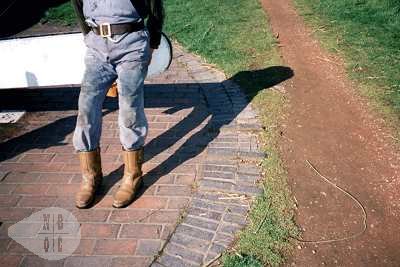 |
There seems to be an infinite number of ways that they may be wrongly sited |
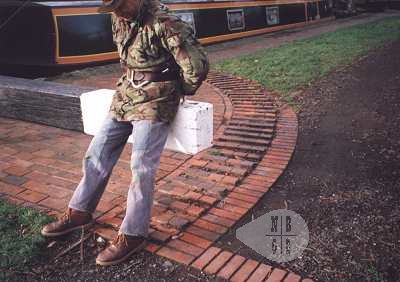 |
Far too many bricks, but not one in the right place |
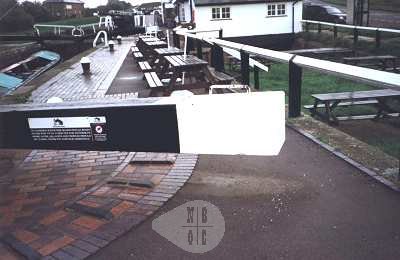 |
They need to be sited at the outer edge of the arc to give maximum leverage |
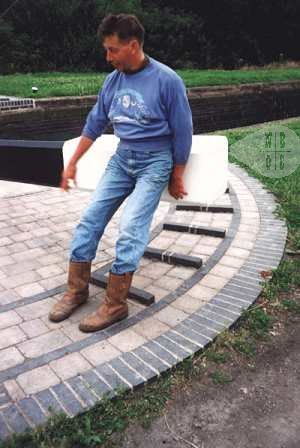 |
The first brick to open the gate is missing, so giving no assistance at all to getting the gate started |
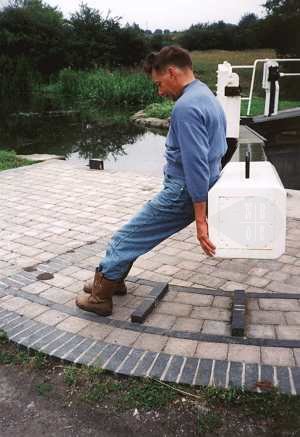 |
|
 |
This lock is missing the first brick... |
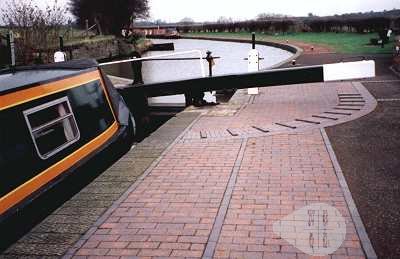 |
...and this the last one |
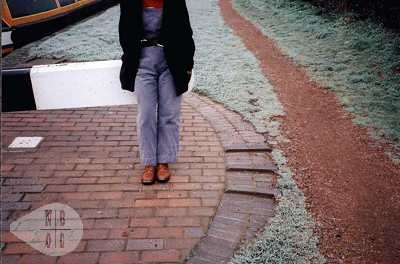 |
These two are too far out of the arc of the beam |
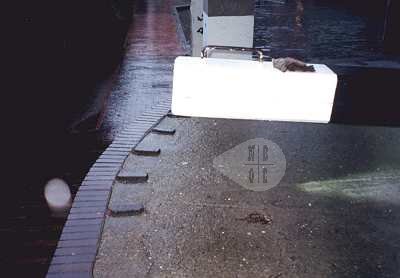 |
|
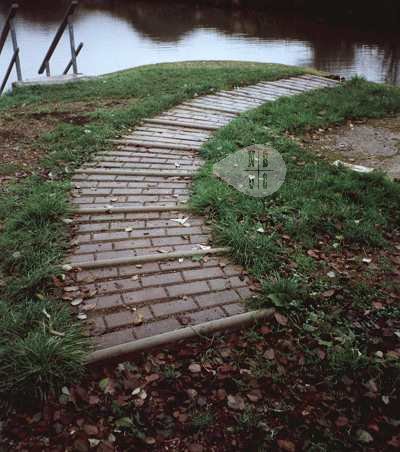 |
A couple of neat varieties encountered on non-BW waterways. (Porters Lock on River Medway) |
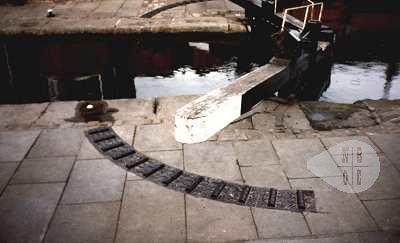 |
This cast metal one is rather attractive. It would of course need to be tailored to the lock and it should not, as in this example, include a bollard in the arc (trip hazard) (Rochdale Canal, Manchester |

